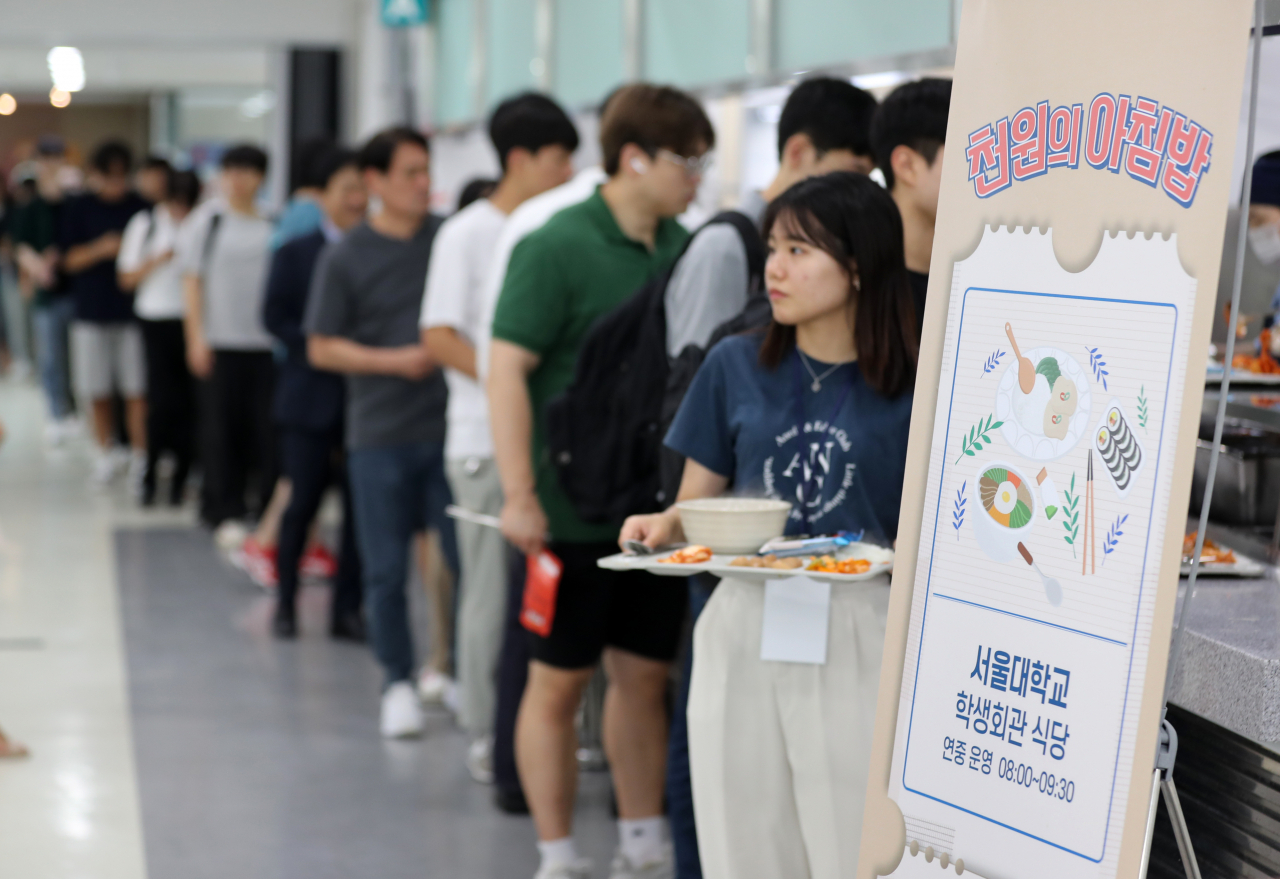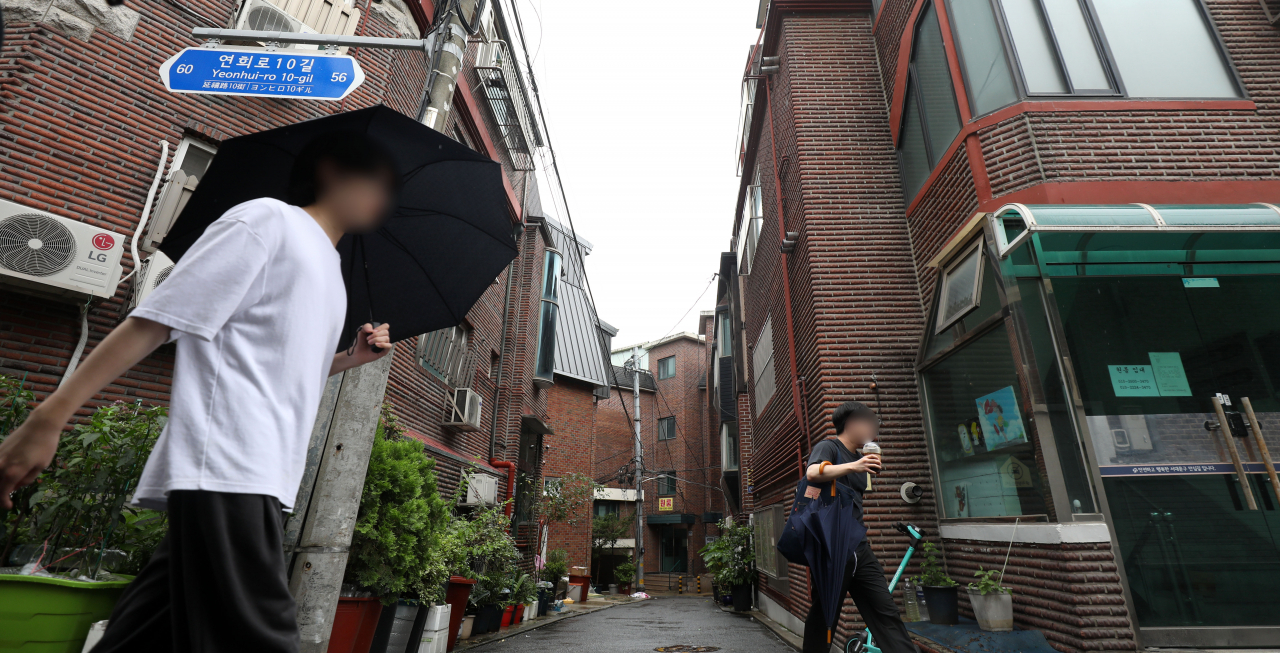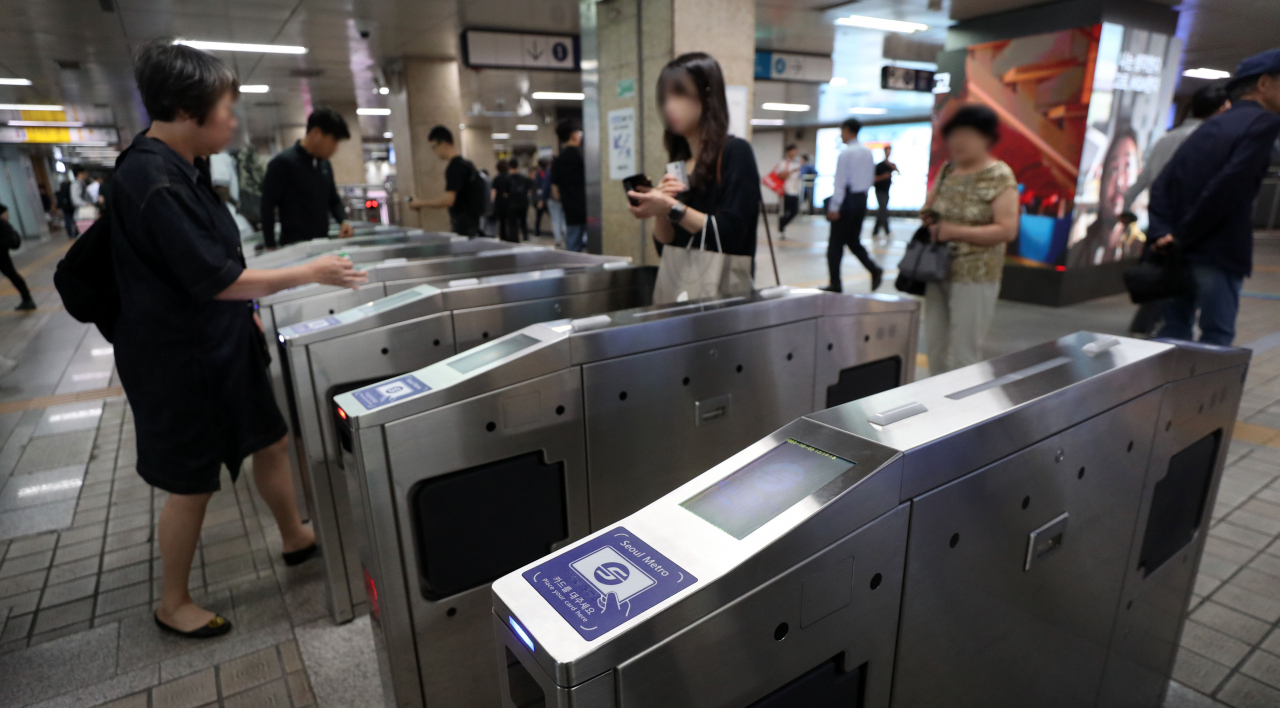How college students are coping with the impact of inflation
Rising costs of essentials like food, housing, transportation and utilities prompt university students to tighten belts
By No Kyung-minPublished : Oct. 10, 2023 - 17:33

Runaway inflation is putting pressure on the economically vulnerable across various walks of life, and college students are among those finding new ways to cope with the cost of living.
In South Korea, it is not unusual for 20-something children to live with their parents until marriage, often receiving full or partial financial support from them.
A survey of 1,319 people in their 20s, conducted by part-time job portal Alba Heaven in August, found that 88.1 percent are financially reliant on their parents. Among them, nearly 97 percent of college students were financially dependent, compared to 83 percent of job seekers. On average, they receive a monthly allowance of around 500,000 won ($370). The survey didn’t ask whether they lived with their parents.
“My parents have been covering my college tuition fees and living expenses,” said Park Ji-eun, who is in her early 20s. “I aspire to be independent from my parents’ financial care someday, but so far, thanks to them, I am not feeling the pinch.”
On the flip side, students who do not receive sufficient financial support from their parents often have to manage on shoestring budget. They face particular challenges with the increasing costs of food and housing.
Ditching 'dosirak'
Twenty-two-year-old college student Choi Young-min said the school cafeterias are the best places to eat amid the rising costs of dining out.
"During weekdays, I prefer going to cafeterias, where I can eat a meal for 3,000-5,000 won," she explained. "I think the food in the school cafeteria tastes better and definitely feels healthier than 'dosirak' (sold in convenience stores)."
Amid the high inflation, the government-subsidized meal project, dubbed the “1,000-won breakfast,” drew enthusiastic responses.
As of May 2023, the program has been implemented at 145 of Korea's 336 universities, covering up to 2.34 million students. Under the Ministry of Agriculture, Food and Rural Affairs' budget scheme, each student is funded 1,000 won by the ministry, and universities cover the remaining cost of the meal, typically around 2,000 won per student.
A Hanyang University student surnamed Park also expressed interest in the low-cost meal program.
“It would benefit me to a great extent both academically and financially since my school operates the program during the school exam period,” he said.
Amid mounting financial pressure, some students refrain from eating out and prefer to cook at home instead.
Lee Eun-ji, a 20-something graduate student in Seoul, has started cooking frequently at home, even though the cost of groceries has also risen.
“I find cooking helpful not only for saving money but also for staying healthy and diligent,” Lee said. “Eating out costs an arm and a leg, and for me, cooking is the most cost-effective."
The Korea National Council of Consumer Organizations, which promotes the rights of consumers, stressed the need to stabilize food costs as a top priority amid the high inflation, since food is a necessity that fulfills basic needs and affects the public's quality of life.
An official from the consumer advocacy group stated, "Considering the consistent rise in food prices year after year, it is crucial to implement price stabilization measures with the voluntary cooperation of food corporations."

Costly housing, transport
Living in dormitories is often the most affordable housing option for college students. But, for students studying near their parents' homes, dormitories are often unavailable as they are reserved for students from farther away.
But off-campus housing costs have been rising due to a combination of factors, including inflation and the shift away from long-term "jeonse" leases.
Jeonse is type of two-year lease in which tenants pay a lump-sum deposit instead of a monthly rent, and get the full deposit back when their contract expires. However, due to a rise in scams related to jeonse over the past year, more people have been shunning jeonse leases.
"Due to high demand stemming from people shunning jeonse leases, rents for studio apartments near universities are soaring," said a real estate agent based in Seongdong-gu.
Additionally, the easing of COVID-19 measures has increased the number of foreign students who are seeking off-campus housing in Korea, she explained.
According to data conducted by South Korean real estate app operator DaBang in August, monthly rents for studio apartments in campus areas surged by 3.53 percent on-year, from an average of 579,000 won to 599,000 won.
Areas near Yonsei University in Sinchon saw the highest jump -- approximately 50 percent -- from 526,000 won to 790,000 won on average, while rents in Hoegi-dong near Kyung Hee University increased by 18.1 percent, from 525,000 won to 620,000 won on average.
Because of the challenge of securing affordable housing, some, like Lee, prefer to renew their fixed-term rental contracts with a slight increase in rent, while others choose to move in with their parents.
For individuals like Choi, who recently moved to Sinchon from southwestern Seoul, transportation fees were a major factor in his move.
"Despite the higher rent, moving closer to school was a good decision, considering the increased transportation costs and long commute," Choi stated. "Taxi fares, especially after late-night social events with people from school clubs and team projects, have become quite burdensome."
Indeed, Seoul city raised the basic taxi fare by 1,000 won to 4,800 won in February, and other regional governments followed suit. Basic fares for public transportation in Seoul have also increased, with the basic bus fare jumping by 300 won to 1,500 won and the subway fare rising 150 won to 1,400 won starting this past Saturday.
And for students who live alone, such as Choi and Lee, the rising energy prices also pose a financial threat to their well-being. South Korea witnessed a more than 30 percent on-year increase in the inflation index for utility bills, including electricity and gas, in the first quarter of this year -- the highest first-quarter increase since 1998.
Lee mentioned that after discovering higher figures on her gas bills last year, she had to endure a colder winter, expressing “fear of going through another cold winter this year.”
Choi Chul, a professor of consumer economics at Sookmyung Women's University, pointed out the inevitable elements that drive up overall consumer prices, influenced by the broader global dynamics.
"The Korean government is (trying to address) inflation in this precarious global economic situation," Choi said. He also underscored the importance of individual efforts in navigating financial challenges.
“Young Koreans need to adopt a strategic approach to manage their finances, cutting down on expenditures and focusing on long-term asset building,” he advised. “It's crucial to save money for future financial security and not to rush into hasty investments for quick gains.”




















![[Today’s K-pop] Treasure to publish magazine for debut anniversary](http://res.heraldm.com/phpwas/restmb_idxmake.php?idx=642&simg=/content/image/2024/07/26/20240726050551_0.jpg&u=)